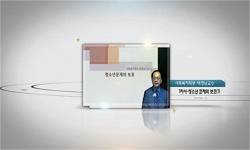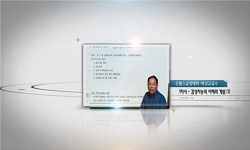This study examines child emotional intelligence in relation to mother’s emotional expressiveness and reaction to child negative emotions. A sample of 352 children and mothers from 4 elementary schools in Seoul and Gyeonggi participated in the study...
http://chineseinput.net/에서 pinyin(병음)방식으로 중국어를 변환할 수 있습니다.
변환된 중국어를 복사하여 사용하시면 됩니다.
- 中文 을 입력하시려면 zhongwen을 입력하시고 space를누르시면됩니다.
- 北京 을 입력하시려면 beijing을 입력하시고 space를 누르시면 됩니다.

어머니의 정서표현성과 부정적 정서표현에 대한 반응이 아동의 정서지능에 미치는 영향 = Effects of Mother’s Emotional Expressiveness and Reaction to Child Negative Emotions on Child Emotional Intelligence
한글로보기https://www.riss.kr/link?id=A100575361
- 저자
- 발행기관
- 학술지명
- 권호사항
-
발행연도
2015
-
작성언어
-
- 주제어
-
KDC
500
-
등재정보
KCI등재
-
자료형태
학술저널
- 발행기관 URL
-
수록면
265-277(13쪽)
-
KCI 피인용횟수
7
- DOI식별코드
- 제공처
-
0
상세조회 -
0
다운로드
부가정보
다국어 초록 (Multilingual Abstract)
This study examines child emotional intelligence in relation to mother’s emotional expressiveness and reaction to child negative emotions. A sample of 352 children and mothers from 4 elementary schools in Seoul and Gyeonggi participated in the study. Child emotional intelligence and mother’s reaction to child negative emotions were evaluated by child-report, and mother’s emotional expressiveness was assessed by mother-report. Data were analyzed by descriptive statistics, two-way analysis of variances, Pearson’s correlation and multiple regression analyses. The findings were as follows. First, mothers of boys showed more oversensitive-reaction to child negative emotions than mothers of girls. Mothers of 6th-graders showed more emotion-minimizing-reaction to child negative emotions than mothers of 5th-graders. Second, girls showed a higher level of overall emotional intelligence than boys. Girls showed a higher level of emotion expression and emotion regulation than boys. The 5th-graders showed higher level of emotion expression than 6th-graders; however, 6th graders showed a higher level of emotion perception than 5th-graders. Third, more emotion-coaching-reaction and less oversensitive-reaction by mothers predicted a better emotional intelligence of children. A mother’s appropriate emotional socialization behaviors associated with child emotional intelligence were discussed.
참고문헌 (Reference)
1 이인학, "초등학생의 정서지능, 자기효능감, 사회성이 학교적응에 대한 상대적 예측력" 한국아동교육학회 18 (18): 47-56, 2009
2 김은경, "자녀의 정서표현에 대한 부모의 태도, 남녀 아동의 정서조절 능력 및 사회적 능력간의 관계" 한국아동학회 28 (28): 115-131, 2007
3 노지영, "자녀의 부정적 정서표현에 대한 어머니 반응에 따른 아동의 정서표현양가성과 정서표현신념" 한국심리학회 산하 한국발달심리학회 23 (23): 57-71, 2010
4 박유영, "유아의 유치원 적응력과 정서지능 및 사회적 유능감과의 관계" 한국영유아교원교육학회 14 (14): 319-336, 2010
5 이강이, "유아의 부정적 정서에 대한 어머니와 아버지의 반응 비교" 한국생활과학회 16 (16): 455-464, 2007
6 정명자, "유아의 부정적 정서에 대한 부모의 반응에 관한 연구" 한국생활과학회 20 (20): 1109-1119, 2011
7 여은진, "유아와 어머니 정서성, 어머니의 정서사회화 행동 및 유아 정서조절간의 구조 분석" 한국열린유아교육학회 14 (14): 275-295, 2009
8 박찬경, "어머니의 우울과 아동의 문제행동간 관계에서 어머니 정서표현성의 조절효과" 교육종합연구소 11 (11): 1-22, 2013
9 장미선, "아동의 정서지능에 관련된 생태학적 변인 연구" 대한가정학회 44 (44): 11-21, 2006
10 오지현, "아동의 부정적 정서표현에 대한 어머니 반응 척도 개발과 타당화" 한국아동학회 34 (34): 97-122, 2013
1 이인학, "초등학생의 정서지능, 자기효능감, 사회성이 학교적응에 대한 상대적 예측력" 한국아동교육학회 18 (18): 47-56, 2009
2 김은경, "자녀의 정서표현에 대한 부모의 태도, 남녀 아동의 정서조절 능력 및 사회적 능력간의 관계" 한국아동학회 28 (28): 115-131, 2007
3 노지영, "자녀의 부정적 정서표현에 대한 어머니 반응에 따른 아동의 정서표현양가성과 정서표현신념" 한국심리학회 산하 한국발달심리학회 23 (23): 57-71, 2010
4 박유영, "유아의 유치원 적응력과 정서지능 및 사회적 유능감과의 관계" 한국영유아교원교육학회 14 (14): 319-336, 2010
5 이강이, "유아의 부정적 정서에 대한 어머니와 아버지의 반응 비교" 한국생활과학회 16 (16): 455-464, 2007
6 정명자, "유아의 부정적 정서에 대한 부모의 반응에 관한 연구" 한국생활과학회 20 (20): 1109-1119, 2011
7 여은진, "유아와 어머니 정서성, 어머니의 정서사회화 행동 및 유아 정서조절간의 구조 분석" 한국열린유아교육학회 14 (14): 275-295, 2009
8 박찬경, "어머니의 우울과 아동의 문제행동간 관계에서 어머니 정서표현성의 조절효과" 교육종합연구소 11 (11): 1-22, 2013
9 장미선, "아동의 정서지능에 관련된 생태학적 변인 연구" 대한가정학회 44 (44): 11-21, 2006
10 오지현, "아동의 부정적 정서표현에 대한 어머니 반응 척도 개발과 타당화" 한국아동학회 34 (34): 97-122, 2013
11 전미순, "모의 양육스트레스가 유아기 자녀의 부정적 정서에 대한 모 반응에 미치는 영향" 한국놀이치료학회 12 (12): 97-116, 2009
12 Halberstadt, A. G, "The social context of nonverbal behavior" Cambridge University Press 109-155, 1999
13 Park, J. H, "The relationship between parents reactions to children’s negative emotions and children’s social adjustment" Sookmyung Women’s University 2005
14 Kim, L. H, "The effect of children’s emotional intelligence and playfulness on peer relational skills" Sookmyung Women’s University 2012
15 Yoo, J. S, "The effect of children’s domain of emotional intelligence on hassles" Sungkyunkwan University 2011
16 Fabes, R. A, "The coping with children’s negative emotions scale: Procedures and scoring"
17 Halberstadt, A. G, "Self-expressiveness within the family context: Psychometric support for a new measure" 7 (7): 93-103, 1995
18 Burrowes, B. D, "Self-and familyexpressiveness styles in the experiences of anger" 11 (11): 254-268, 1987
19 Park, S. J, "Relations between maternal socialization behaviors of emotions and school-aged children’s competence and strategies of emotion regulation" Sungkyunkwan University 2004
20 Eisenberg, N, "Parents’ reactions to children’s negative emotions: Relations to children’s social competence and comforting behavior" 67 (67): 2227-2247, 1996
21 Dunsmore, J. C, "Parents’ expressiveness and young children’s emotion decoding with parents and unknown adults" 162 (162): 478-494, 2001
22 Parker, A. E, "Parental socialization of positive and negative emotions: Associations with children’s everyday coping and display rule knowledge" North Carolina State University 2006
23 Eisenberg, N, "Parental socialization of emotion" 9 (9): 241-273, 1998
24 Park, K. H, "Parental reaction towards their children’s negative emotion according to children’s age and gender" Catholic University of Korea 2009
25 Gottman, J. M, "Parental metaemotion philosophy and the emotional life of families: Theoretical models and preliminary data" 10 (10): 243-268, 1996
26 Han, E. G, "Parental emotion regulation and children’s understanding of emotional display rules" 36 (36): 61-72, 1998
27 Denham, S. A, "Parental contributions to preschoolers’ understanding of emotions" 34 (34): 311-343, 2002
28 Kim, E. J, "Mother’s acceptance attitude toward negative emotion and children’s anger expression mode" Korea University 2011
29 Moon, Y. L, "Measuring emotional intelligence: A case in Korea" Samsung Life Social Mental Health Institute, Seoul National University Education Research Institute 1996
30 Katz, L. F, "Maternal meta-emotion philosophy and adolescent depressive symptomatology" 16 (16): 343-360, 2007
31 Goleman, D, "Emotional intelligence: Why it can matter more than IQ" Bantam Books 1995
32 Mayer, J. D, "Emotional intelligence meets traditional standards for an intelligence" 27 (27): 267-298, 1999
33 Mayer, J. D, "Emotional intelligence as a standard intelligence" 1 (1): 232-242, 2001
34 Salovey, P, "Emotional intelligence" 9 (9): 185-211, 1990
35 Denham, S. A, "Emotional development in young children" Guilford Press 1998
36 Mayer, J. D, "Emotional development and emotional intelligence: Educational implications" Perseus Books Group 3-31, 1997
37 Chung, O. B, "Emotional development & emotional intelligence" Hakjisa 2007
38 Izard, C. E, "Emotion knowledge, emotion utilization, and emotion regulation" 3 (3): 44-52, 2011
39 Zeman, J, "Display rules for anger, sadness and pain: It depends on who is watching" 67 (67): 957-973, 1996
40 Murphy, B. C, "Consistency and change in children’s emotionality and regulation: A longitudinal study" 45 (45): 413-444, 1999
41 Lambie, J. A, "Consciousness and the varieties of emotion experience: A theoretical framework" 109 (109): 219-259, 2002
42 Moon, Y. L, "Comprehensive career aptitude scale" Daekyobook 1997
43 Krause, E. D, "Childhood emotional invalidation and adult psychological distress: The mediating role of emotional inhibition" 27 (27): 199-213, 2003
44 Paley, V. G, "Boys and girls: Superheroes in the doll corner" University of Chicago Press 1984
45 Dunn, J, "Affect expression in the family, children’s understanding of emotions and their interactions with others" 40 (40): 120-137, 1994
46 Ahn, H. J, "A study on the relationship between parenting attitudes and emotional intelligence" Seoul National University 1999
47 Kwak, Y. J, "A study on the developmental trend and validity of emotional intelligence" Seoul National University 1997
동일학술지(권/호) 다른 논문
-
부모의 학대, 방임과 청소년의 학교생활적응간의 관계에서 자아존중감의 매개효과
- 대한가정학회
- 이윤아 ( Yoon A Lee )
- 2015
- KCI등재
-
가정환경의 질과 아버지의 양육참여가 취학 전 유아의 학교준비도에 미치는 영향
- 대한가정학회
- 조경진 ( Kyung Jin Cho )
- 2015
- KCI등재
-
유아의 정서지능과 사회적 유능성의 관계에서 유아-교사 관계의 매개효과
- 대한가정학회
- 김길숙 ( Gil Sook Kim )
- 2015
- KCI등재
-
자녀와 부모의 소비문화와 결혼식인식이 작은 결혼식 선호도에 미치는 영향
- 대한가정학회
- 주영애 ( Young Ae Ju )
- 2015
- KCI등재
분석정보
인용정보 인용지수 설명보기
학술지 이력
| 연월일 | 이력구분 | 이력상세 | 등재구분 |
|---|---|---|---|
| 2026 | 평가예정 | 재인증평가 신청대상 (재인증) | |
| 2020-01-01 | 평가 | 등재학술지 유지 (재인증) |  |
| 2017-01-11 | 통합 |  |
|
| 2013-06-25 | 학술지명변경 | 한글명 : 대한가정학회지 -> Family and Environment Research외국어명 : Journal of the Korean Home Economics Association -> Family and Environment Research |  |
| 2013-01-01 | 평가 | 등재학술지 유지 (등재유지) |  |
| 2011-11-23 | 학술지명변경 | 외국어명 : 미등록 -> Journal of the Korean Home Economics Association |  |
| 2010-01-01 | 평가 | 등재학술지 유지 (등재유지) |  |
| 2008-01-01 | 평가 | 등재학술지 유지 (등재유지) |  |
| 2006-01-01 | 평가 | 등재학술지 유지 (등재유지) |  |
| 2001-01-01 | 평가 | 등재학술지 선정 (등재후보2차) |  |
| 1998-07-01 | 평가 | 등재후보학술지 선정 (신규평가) |  |
학술지 인용정보
| 기준연도 | WOS-KCI 통합IF(2년) | KCIF(2년) | KCIF(3년) |
|---|---|---|---|
| 2016 | 0.76 | 0.76 | 0.96 |
| KCIF(4년) | KCIF(5년) | 중심성지수(3년) | 즉시성지수 |
| 1.02 | 1.04 | 1.279 | 0.17 |




 ScienceON
ScienceON KISS
KISS






